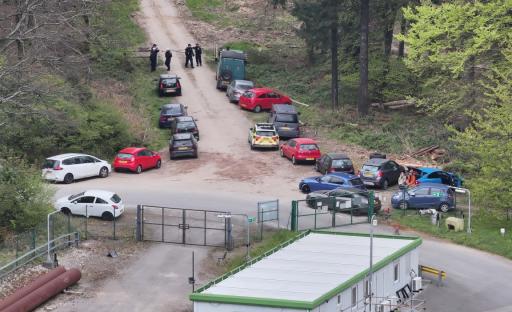Ontario Premier Doug Ford used his time at Thursday’s meeting between the prime minister and the premiers to press Justin Trudeau to radically tighten both international and provincial borders, fearing that new vaccine-resistant COVID-19 variants will take hold in his province, leading to a devastating fourth wave.
Picking up on some themes he and Quebec Premier Francois Legault laid out in a joint letter they sent to Trudeau last week, Ford pressed the prime minister to do more to shut down international flights from COVID-19 hotspots in India; to close loopholes at Canada’s land borders that allow some travellers to skirt quarantine rules that apply to air travellers; and to bring in new rules that would require domestic air travellers to provide proof of a ‘clean’ COVID-19 test before boarding an aircraft for an interprovincial flight.
A senior government official with the Ontario government said Ford’s approach with the prime minister was not adversarial nor was it one that was seeking to assign blame but was instead coming from “a place of desperation.”
Read more: Ontario is launching paid sick leave. Should other provinces follow suit?
Ford is worried that a failure, for example, to “close loopholes”; that allow air travellers to land in the United States and then cross into Canada at a land border, skirting rules for air travellers on hotel quarantines and COVID-19 testing, will open his province and the country up to a potential fourth wave.
A spokesperson for Trudeau was not immediately available.
And while Ford pleaded for tighter border controls, other premiers argued that the federal government should do more to help them provide more robust sick leave programs that would give workers the financial security to stay home if they or a family member felt sick.
“We’re a little disappointed with the federal government after [B.C.] Premier [John] Horgan and I and others led the charge, frankly, on pushing for a national sick leave program for this pandemic,”; Manitoba Premier Brian Pallister told reporters in Winnipeg a few hours before the First Ministers’ Meeting. “I’m not giving up on the prime minister yet ... I know most premiers would like to see a national program.”
Sources close to Horgan said he has been frustrated that Ottawa appears to be pressuring provinces to quickly design, implement and pay for a sick leave program that he and other premiers believe could and should be done best by the federal government.
Read more: Provinces want tightened travel, land border restrictions to limit COVID-19 variants: Legault
The teleconference meeting began with a presentation by Deputy Prime Minister and Finance Minister Chrystia Freeland, who ran through some of the key themes of the federal budget she presented last week, a highlight of which was a federal commitment to spend $30 billion over the next five years to build a national child care program.
But to do that, she’ll need the help of the provinces. Indeed, they will be expected to shoulder half the cost.
Many premiers were lukewarm to the idea, with some preferring one-on-one bilateral deals. Others, like Alberta and Quebec, preferred to be simply handed the federal cash to continue their own work on child care, while still others, such as Nova Scotia’s Iain Rankin, were more focused on the COVID-19 health crisis in their own provinces.



